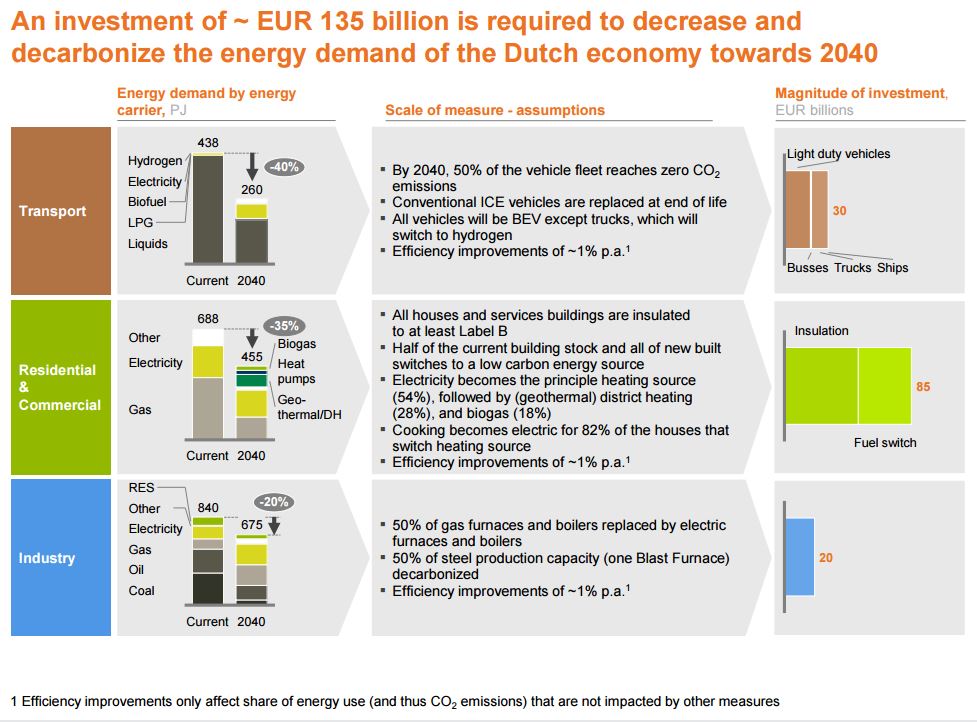Transforming the Netherlands’ energy system could provide a boost to the economy while lowering greenhouse-gas emissions in line with European goals. This is the conclusion of a report by consultancy firm McKinsey.
To realize the European Union’s goal of cutting greenhouse gas (GHG) emissions by up to 95 percent by the year 2050, the Netherlands would have to triple the annual rate of emission reduction that it averaged from 1990 to 2014. There are few if any precedents for how to achieve such a change. One thing is certain, though: transforming the Dutch energy system to bring about deep GHG emissions reductions will require significant levels of investment. For policymakers and business leaders, this imperative raises the crucial question of how to minimize the costs and maximize the benefits of an energy transition in the Netherlands.
This report finds that an accelerated but flexible approach to reducing the country’s GHG emissions can yield substantial economic value. We estimate that investing €10 billion per year between 2020 and 2040 in a low-carbon energy system could boost economic growth and create some 45,000 jobs in the near term, with the potential addition of tens of thousands of jobs over the long run. The report also explores how the government and the private sector can make such an investment program more efficient and support the development of sectors with the most potential to generate economic growth and increase employment.



